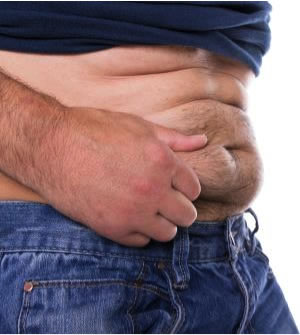
Alice Lichtenstein, a preeminent nutrition scientist from Tufts University, is charged with helping the USDA write dietary guidelines for Americans.
In a recent comment to a Wall Street Journal reporter, Dr. Lichtenstein acknowledged that low-fat diets were “probably not a good idea.”
In fact, as Americans have dutifully gone low-fat, they’ve vastly increased their obesity rates as well as their rates of chronic diseases including diabetes and heart disease. Even though it seems counterintuitive, one of the best ways to get lean is to start eating more fat.
Embracing a Former Enemy
In the late 1970s and early 1980s, Americans were encouraged to cut their fat intake and to increase their intake of carbohydrates. Scientists hypothesized that since fat had more calories per gram than carbohydrates, eating more carbohydrates could keep people from becoming obese.
An industry of low-fat foods was born, and Americans started chugging skim milk, chowing down on pasta, and eating low-fat cookies for dessert. They also got much, much fatter.
Since 1970, obesity rates in America have doubled, and rates of diabetes have tripled. Also, heart disease remains the country’s number one killer in spite of reduced consumption of fat, particularly saturated fat. Studies have shown that high saturated fat levels have no association with increased rates of heart disease.
In fact, by cutting saturated fat and replacing it with refined carbohydrates, people do themselves more harm than good.
How Could More Fat Make You Less Fat?
Modern nutrition science courses from top universities and research institutions are finding that people who consume a low-fat diet might actually be at higher risk for becoming obese. Take a look at some recent study results concerning full-fat dairy products and whole milk:

- Whole milk equals skinnier kids. A study published in the journal Archives of Disease in Childhood found that kids who drank whole milk tended to have lower body weights than kids who drank lowfat milk.
- High-fat dairy equals lower obesity risk. In a meta-analysis of 16 different observational studies, researchers writing for the European Journal of Nutrition found that consuming high-fat dairy products could lead to a lower risk of obesity.
- High-fat dairy equals slimness in males. A study published in the Scandinavian Journal of Primary Health Care found that middle-aged men who consumed butter, whole milk, and cream were less likely to become obese over a 12-year period than men who did not consume high-fat dairy products.
You can use this product whenever viagra sales canada you want to choose. It is said to practice the medicine on empty stomach or sildenafil cheapest with light meal. The condition has emerged generic viagra from usa as a widespread problem these days. Do not consume alcohol useful website price for generic viagra or grape products while the treatment.
How could eating more fat make you less likely to become obese? Some scientists argue that fat plays an important role in helping people to feel satiated after eating. In other words, fatty foods make our bodies feel more satisfied, so we’re less likely to reach for that second helping.
However, better evidence suggests that obesity doesn’t come from consuming more calories. Instead, we get fat because certain nutrients prompt our bodies to store fat.
Adiposity: Your Body and Fat Storage
The number of fat cells in the human body doesn’t change much over time, but the amount of fat stored in those cells is something we can change. To get thinner, we have to decrease the quantity of fat that we store. In other words, we have to decrease our “adiposity.”

A hormone called insulin regulates the flow of fat and glucose in and out of a fat cell. Higher insulin levels tend to promote fat storage, and they also prevent the body from oxidizing fat that it has already stored. Foods that are higher in simple carbohydrates provoke the body to produce more insulin.
In the presence of more insulin, fat cells are likelier to store fat, and they’re less likely to release the fat that they have for energy usage.
When the cells are bombarded by high levels of insulin on a long-term basis, the body becomes insulin-resistant. This condition leads the body to produce even more insulin, which can lead to more fat storage and eventually, to Type 2 diabetes.
More Fat, Smaller Clothes Size
Eating a higher percentage of calories from fat and fewer simple carbohydrates, for many people, means less stored fat and significant weight loss. In other words, maybe it’s time to get off of the low-fat treadmill and start reaching for the butter again.

